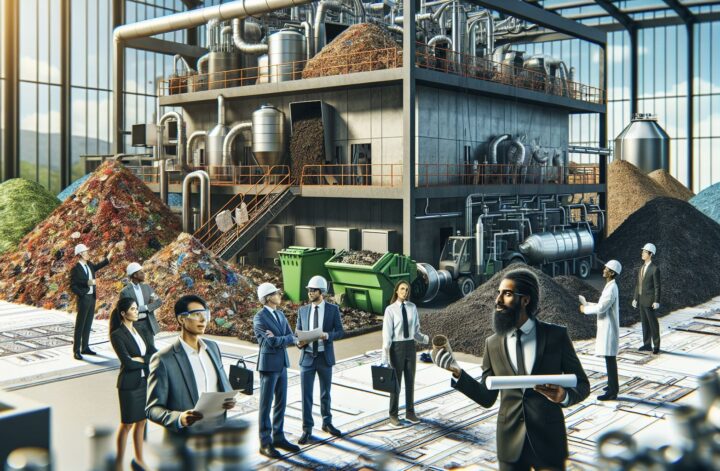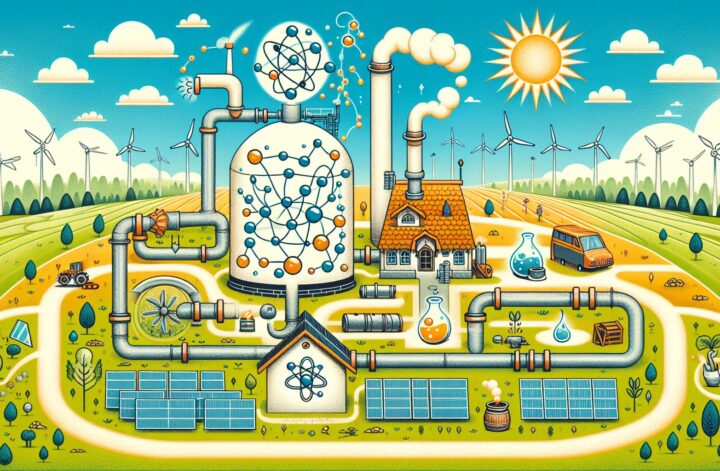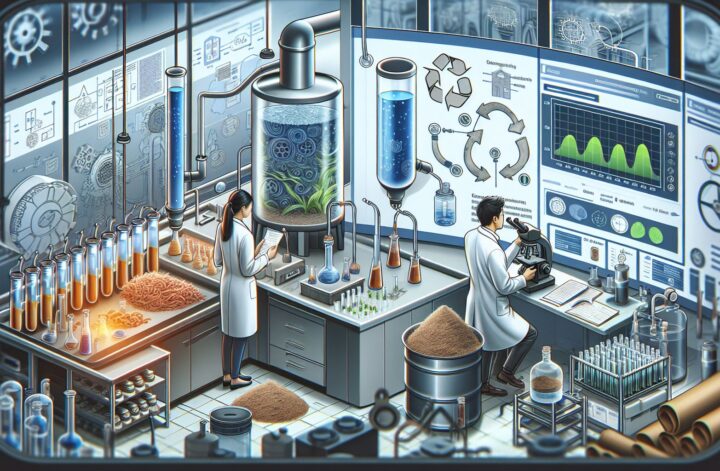The sheer volume of organic waste generated today is astounding. These organic wastes, if not properly treated, can potentially lead to severe environmental concerns. It’s thus essential to pursue organic waste treatment in our continuous strive towards sustainability. This article explores the fascinating world of organic waste treatment – its importance, various methods, their benefits, and associated challenges.
What is Organic Waste?
Before delving deeper into the intricacies of the waste treatment process, let’s first establish a basic understanding of what constitutes organic waste. Organic waste generally refers to materials that originate from plant or animal sources and are biodegradable. Examples of organic waste include fruit and vegetable peels, leaves, grass trimmings, paper, wood, and even manure[^1^].
The Necessity for Organic Waste Treatment
The environmental impact of mismanaged organic waste is considerable. Not only does it contribute to land and water pollution, but decomposition of organic waste in landfills also produces methane, a powerful greenhouse gas. At the same time, organic waste also represents a potentially enormous resource for energy and nutrient recovery. Therefore, effective organic waste treatment is not just a matter of waste management, but also a significant imperative for reducing greenhouse gas emissions and promoting sustainability.
Organic Waste Treatment Methods
While there are several methods for treating organic waste, the most commonly utilized contain elements of biological processes, particularly composting and anaerobic digestion.
Composting
Composting is a biological process that involves the aerobic (oxygen-dependent) decomposition of organic waste by microorganisms. The end product of composting is a rich soil conditioner known as compost. Composting not only reduces the volume of organic waste that would otherwise end up in landfills but also generates a valuable product – compost – that can enhance soil fertility and structure[^2^].
Anaerobic Digestion
Unlike composting, anaerobic digestion involves the breaking down of organic matter in the absence of oxygen. This process produces biogas, a potent mixture of methane and carbon dioxide, which can be utilized as a renewable energy source. Additionally, the anaerobic digestion process also generates a nutrient-rich byproduct known as digestate, which, similar to compost, can be used as a soil amendment[^3^].
Benefits of Organic Waste Treatment
Reduction in Waste Volume
Organic waste treatment significantly reduces the volume of waste that ends up in landfills. It’s a crucial factor considering that global waste volumes are projected to increase by 70% over the next 30 years.
Greenhouse Gas Emissions Mitigation
The reduction of organic waste in landfills also leads to reduced greenhouse gas emissions. Especially, the anaerobic digestion process captures methane that would otherwise be released into the atmosphere.
Resource Recovery
Both composting and anaerobic digestion processes produce rich end products – compost and digestate respectively – that can replace synthetic fertilizers. Moreover, the biogas generated in anaerobic digestion can serve as a renewable energy source.
Challenges and Future Perspective
While the benefits of organic waste treatment are palpable, there still exist challenges that need to be addressed to reap its full potential. These include the need for better waste segregation, overcoming technical challenges in implementing waste treatment facilities, and coping with the variability in waste composition. Continuous research and innovation in these areas will undoubtedly be instrumental in advancing organic waste treatment for a sustainable future.
To sum up, organic waste treatment is an exciting frontier in the quest for sustainability. Through its many facets, it has the potential to address waste management issues, climate change, and more – thus leading us closer to a more sustainable future.
References
[^1^]: U.S. Environmental Protection Agency. (2020). Composting Basics. [online] Available at: https://www.epa.gov/recycle/composting-home [Accessed 17 Dec 2021]
[^2^]: Composting Council Research & Education Foundation. (2018). Composting and Its Benefits. [online] Available at: https://compostingcouncil.org/composting-and-its-benefits/ [Accessed 17 Dec 2021]
[^3^]: U.S. Environmental Protection Agency. (2020). Anaerobic Digestion. [online] Available at: https://www.epa.gov/agstar/anaerobic-digestion [Accessed 17 Dec 2021]




